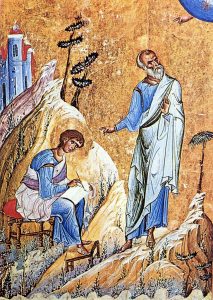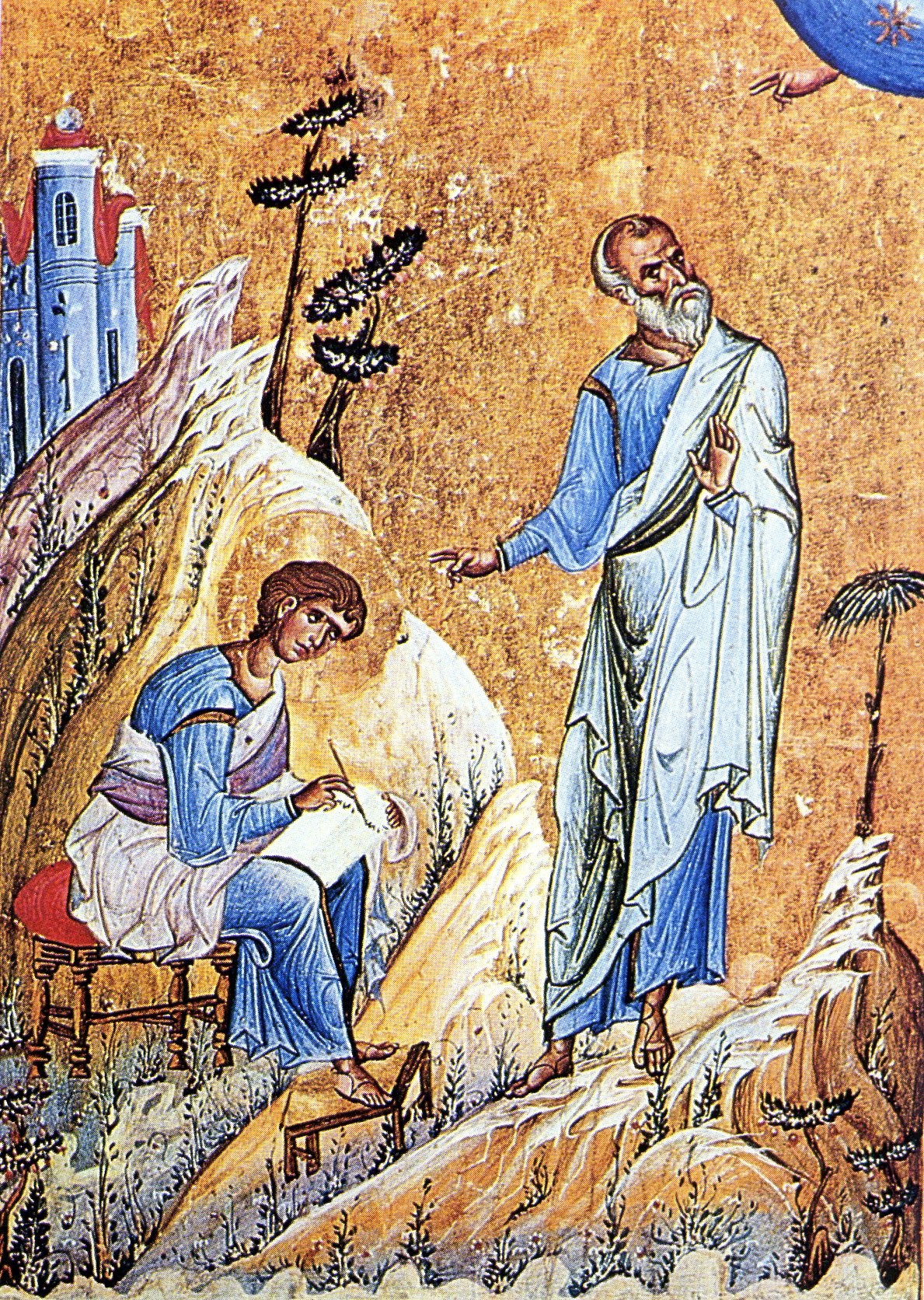 Today, the Greek Church honors the Holy Beloved Apostle and Evangelist John the Theologian.
Today, the Greek Church honors the Holy Beloved Apostle and Evangelist John the Theologian.
On May 8, we celebrate one of the two feasts of the Holy Apostle and Evangelist John, the brother of James. The other is on September 26, the day of his falling asleep. The fourth Gospel is attributed to John, and we can truly call it a “theo-logical,” for it witnesses most clearly to the mystery of the Incarnation, of the Word of God taking flesh in the womb of the Holy Theotokos for our salvation. It is the most sublime Gospel, and it gave John the title “Theologian.”
The Byzantine Church gives this gospel a certain priority, and it is read in the most joyful and glorious time of the year, from Pascha to Pentecost. This Gospel is the very essence of the apostolic witness, through which we come to faith in Christ, as indeed John foretold, when the risen Jesus says to Thomas, “Blessed are those who have not seen and have believed,” (John 20:29). because we have all heard of the divinity of the Lord through the witness of the apostles. Some try to discredit Christian faith by pointing out that John’s Gospel was the last to be written, that the first Gospel, Mark, does not mention the divinity of Jesus, and that faith in the Incarnation is then a later Christian development. They do this by trying to fit the Gospels into a linear line, from the earliest to the latest, and it is easy to fall for this. However, the development of the Gospels in not linear, but they arise from different communities, and each has a vision of Christ. Indeed, does not St. Mathew’s Gospel proclaim the truth of the Trinity, where the risen Jesus proclaims, “Go, therefore, and make disciples of all nations, baptizing them in the name of the Father, and of the Son, and of the holy Spirit” (Matthew 28:19). And – yes – there are many other witnesses to Jesus’ divinity in the epistles and apostolic writings.
The Letter to the Hebrews says, “[Jesus] is the refulgence of [the Father’s] glory, the very imprint of his being, and who sustains all things by his mighty word” (Hebrews 1:3). Rejoice, therefore, in this holy season in the glory of the risen Christ so beautifully proclaimed by John. It is John who tells us, “God is light, and in him there is no darkness at all. If we say, “We have fellowship with him,” while we continue to walk in darkness, we lie and do not act in truth. But if we walk in the light as he is in the light, then we have fellowship with one another, and the blood of his Son Jesus cleanses us from all sin” (1 John 1:5-7). It is John who tells us, “Beloved, let us love one another, because love is of God; everyone who loves is begotten by God and knows God. Whoever is without love does not know God, for God is love” (1 John 4:7-8).
In every Liturgy we accept this apostolic witness when the deacon invites us, “Let us love one another, so that with one mind we may profess.”
Meditation by Archpriest David Petras
